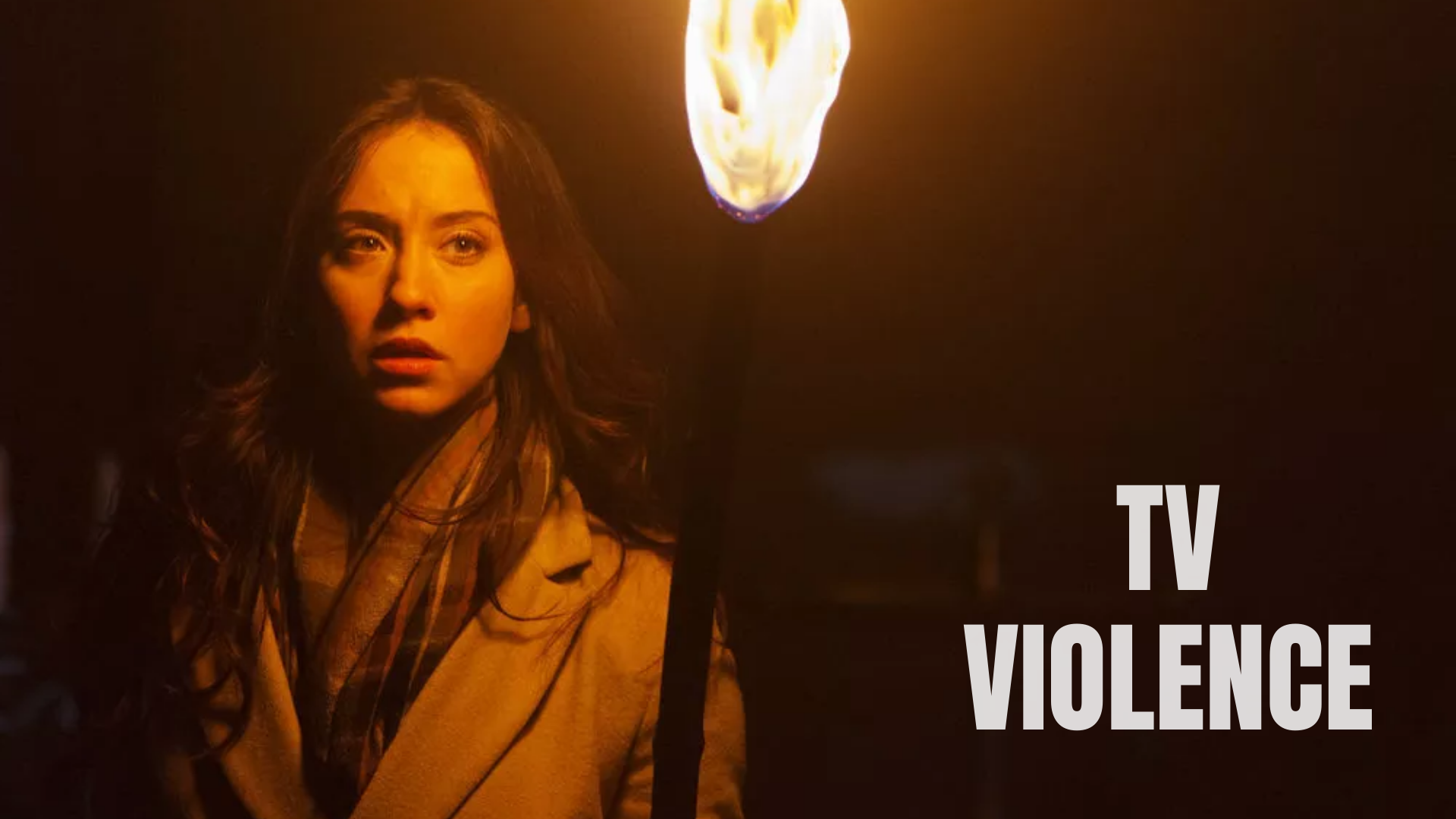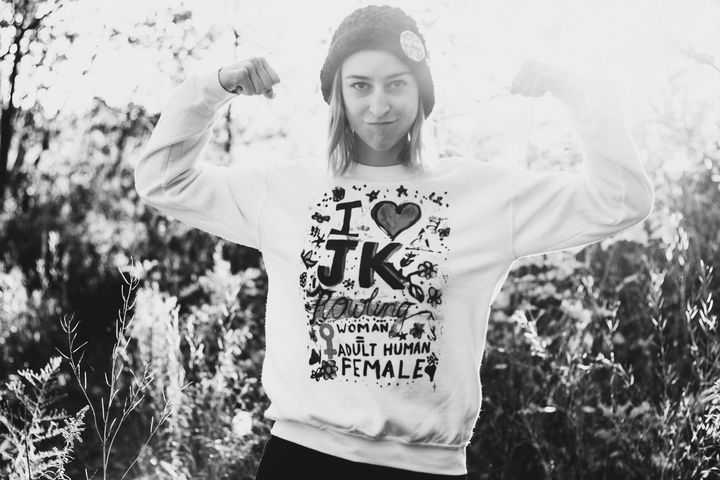Is Gory TV Exposing Male Violence, or Normalizing It?
Research demonstrates that showrunners may be raising awareness all wrong.

This post contains spoilers for The Magicians and Game of Thrones TV series and books, as well as discussions of violence, gore, and rape.
A fter enjoying A Discovery of Witches so much, I found myself on a bit of a magical TV kick this past week. I was initially drawn to The Magicians' Narnia meets Hogwarts vibe, a concept that is as nostalgic and comfortable as it is derivative. I assumed, since they chose to use grad students rather than children for their magical school, that the adult themes would be sexual in nature—and certainly, there is a degree of that. But The Magicians is mostly pretty tame when it comes to (consensual) sex scenes, an abnormality in a modern TV. Where The Magicians doesn't hold back, though, is in gore.
The TV show is probably one of the most violent ones I have ever seen. Sure, I don't particularly go out of my way to watch horror or gore, but I was shocked at the level of violence in a fantasy show—and not simply violence, but grotesque, disturbing violence, often against women.
Some particularly violent scenes included:
- An antagonist ripping the school Dean's eyes out of his head and placing them on a student's desk
- A "Trickster God" killing a main character's friends in front of her, then pinning her to the ground and brutally raping her
- The same Trickster God turning a woman's pet cat inside out (while still alive!) and then biting off the woman's finger
After the last scene above, I stopped watching the show. I've been having trouble sleeping ever since—it's been four days now.
The Magicians came under fire for their depiction of rape, which viewers later discover gave the victim special powers through his God-semen (yes, I know). Sera Gamble, the show's executive producer, defended the scene. In addition to being true to the books, she claimed that she wanted to show the brutal reality of rape:
"I was in grade school reading those big books of Greek mythology and every other story has a god coming down and violating a woman or a nypmh or a driad or something and it never really occurred to me... it doesn’t translate in the tone of the little short stories how brutal and violent that act really is."
She's actually right about that. Our popular culture is full of rape-stories which are completely glossed over, and sometimes even romanticized. Many Greek myths include rape, such as the stories of Demeter, Leda, and Persephone. Medusa, now best known as a horrendous villain whose gaze could turn a man to stone, was a victim of rape by Poseidon (a serial rapist). She was originally a beautiful maiden who was raped by him in Athena's temple, and then Athena, for some reason, decided to punish Medusa in the ultimate act of victim-blaming. (Shout out to the Charmed reboot for finally doing Medusa justice).
If The Magicians was going to rape a woman and then give her magical powers because of it, at least they did it brutally so we really understand the depth of male depravity, right?
Or, so the argument goes.
Similar justifications have been used to excuse Game of Thrones, which portrayed at least 17 rape or attempted-rape scenes during seven seasons. Sophie Turner, the actress who plays Sansa Stark said to The Times:
"The more we talk about sexual assault the better, and screw the people who are saying we shouldn’t be putting this on TV and screw the people who are saying they’re going to boycott the show because of it.”
Others have agreed, arguing that by portraying a violent and sexist world, author George R.R. Martin "force[s] us to come to terms with the gravity of violence". It would be disingenuous, they claim, to portray a medieval world without rape and gore.
The producers of these shows may be genuine in their intent to raise awareness (or, maybe, just ratings). Yet, we cannot deny that viewing violent content has an impact on viewers—and it may be the opposite effect than show-runners were aiming for.
A 2000 meta-analysis in the Journal of Adolescent Health demonstrated that viewing media violence is consistently linked with higher rates of anti-social behavior (ranging from violence against toys to criminal violence), and levels of hostility. They also found increased levels of desensitization, including "the reduced tendency to intervene in a fight, and less sympathy for the victims of violence." The study also stated that:
"Although there is evidence that youth who are already violent are more likely to seek out violent entertainment, there is strong evidence that the relationship between violence viewing and antisocial behavior is bidirectional."
A 2013 study demonstrated that this effect is stronger among adolescents who are already experiencing violence in their families. Another study demonstrated that males who were exposed to media with sexual violence became more accepting of violence against women, while females exposed to the same content became less-so.
This is no surprise, given the known effects of pornography on the male brain. A 2015 meta-analysis of 22 studies from seven different countries demonstrated that porn consumption is linked to both verbal and sexual aggression. A 2011 study found that among college fraternity men, porn consumption led to less willingness to intervene if they saw a woman being sexually assaulted, increased behavioral intent to rape, and increased belief of rape myths. Boys who are exposed to porn young are more likely to want power over women, support male dominance, and agree with statements like, “things tend to be better when men are in charge.”
Many of these TV shows contain content that may be considered explicitly pornographic, and the TV-porn crossover is clear. Emilia Clarke, the actress who plays Daenerys Targaryen on Game of Thrones, was one of porn site XHamster's top ten searched celebrities this year.
This research indicates that while violent TV may be raising awareness of the brutal reality of male violence, this effect is only true for those who are already predisposed to be sympathetic to it (like women). Meanwhile, men and those at heightened risk for aggression due to their life experiences are becoming desensitized to the normalized TV violence.
If showrunners really care about more than just increased ratings (would Game of Thrones really have been a hit without Danny's rape in literally the first episode?), it may be time to reconsider their methods of exposing male violence. Having characters talk openly, honestly, and emotionally about the impacts of violence and sexual assault may be more effective than actually portraying brutal violence against women.
The generous support of our readers allows 4W to pay our all-female staff and over 50 writers across the globe for original articles and reporting you can’t find anywhere else. Like our work? Become a monthly donor!
Enter your email below to sign in or become a 4W member and join the conversation.
(Already did this? Try refreshing the page!)





Comments